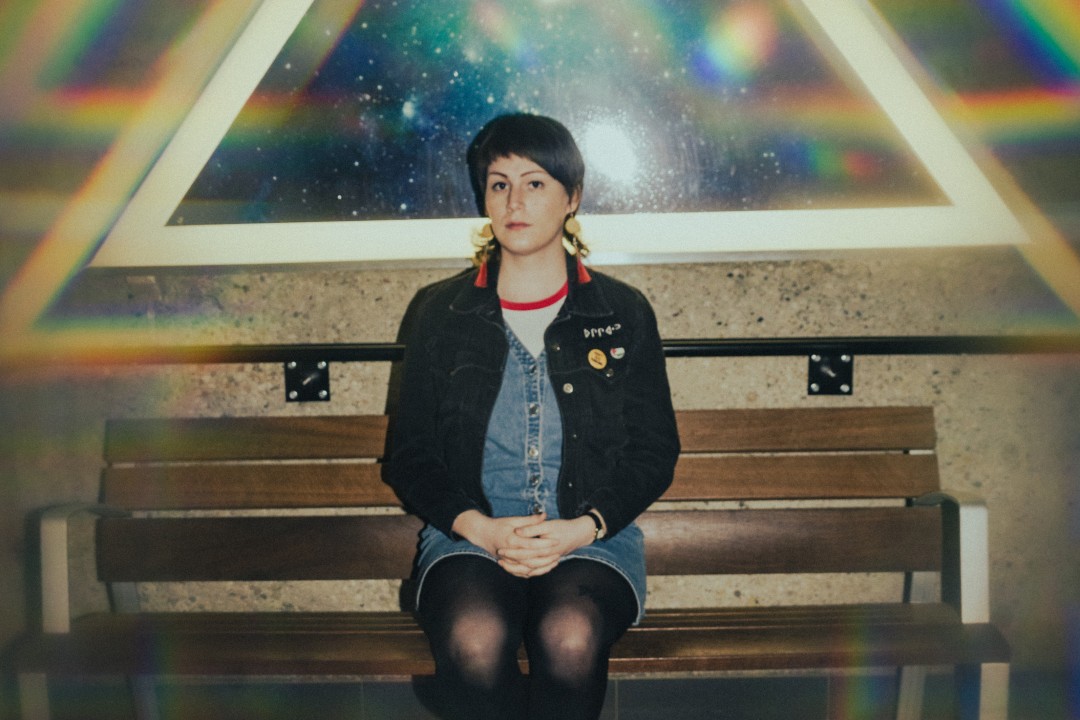Independent recording artist Cassia Hardy is part of a growing number of performers who are reconsidering booking gigs in the United States, and even trying to build American audiences.
"(When I think about) the struggles and the inhumanity that migrants trying to enter the United States face, it makes me sick to think about personally participating in that system," Hardy told Taproot. "I just got less and less comfortable with giving really any amount of money to the American government, to say nothing of the fact that they (now) scrape all your socials, and if they don't like the cut of your jib, they just won't let you in regardless."
Artists from Alberta, Canada, and beyond have expressed increasing concern about playing for American audiences due, in part, to the radicalized political climate in the country since President Donald Trump took power, and in particular to specific discrimination and targeting, including discrimination based on gender identity.
For example, Robert Adam, a non-binary musician from Calgary, recorded their latest album in Nashville but won't perform the new songs in the U.S. due to fear they'd need to hide their authenticity thanks to an executive order by Trump, which declared there are only two, immutable sexes in January.
Musicians also face growing costs and wait times for visas to enter the U.S., and the anxiety created by increased scrutiny and potential detainment at the U.S. border.
Hardy said her concerns about American policies aren't unique to the Trump era. She and her bandmates in her former project, Wares, almost paid $US400 per person, plus a rush fee, to obtain work visas to tour the U.S. in 2020. Hardy said the group found both the expense and rigorous process disheartening. The band did not ultimately submit applications, and Hardy said they dodged a bullet because COVID-19 restrictions would have killed the tour anyway.
Still, Hardy had choice words about how this hurdle negatively affects artists and vulnerable populations.
"I think it's bullshit," she said. "I am angry about it. It prevents cultural exchange."
Also in 2020, Wares released the song Living Proof about the experience of receiving gender-affirming care. She dedicated the song to trans people and their perseverance.
Since then, The Human Rights Campaign, one of the largest LGBTQ+ advocacy groups in the U.S., has mapped the 26 U.S. states that have passed legislation to ban gender-affirming care.

Cassia Hardy is one of many Canadian artists who have lost their appetite to perform in the United States, a market once seen as integral for musical success. (Lyle Bell)
Each artist finds different pros and cons to what's happening in the U.S. versus the size of its audience. Singer-songwriter Mariel Buckley told Postmedia in May that she has worked to grow a live audience in the country over years of visits to Nashville. She has more than a dozen U.S. dates slotted in July. Buckley declined to comment for this story.
Hardy, meanwhile, has a new album to share, her first as a solo act, called In Relation. It was released on May 25 via Mint Records. Rather than tour it in the U.S., though, she has shows coming up in Calgary and Vancouver.
Making it as an artist without playing the U.S.
Performing in the U.S. has long been important for artists to build a paying audience. But Hardy said she imagines a different reality.
Her new album isn't available on vinyl, CD, or major streamers like Spotify. Producing vinyl is expensive, takes a long time, and is heavily reliant on plastic, she said. (As for Spotify, it pays an average of $0.003 to $0.005 per song stream.)
Hardy's fans can, instead, listen to the new album on Bandcamp, buy a cassette, or get a download code with the purchase of a zine that comprises lyrics, photography, and essays.
"Having vinyl records is not what my audience is hungry for," Hardy said. "I think they're just hungry to come to the small clubs across the country where I'm playing, and they want to have a souvenir of the time they saw me on this tour."
To make life easier for artists pursuing this reality, Hardy said she would like to see public funding, such as grants, shift from a project-specific model to investing in entire communities. She said access to places where artists can find instruments and tools, engage with peers, and hone their craft would enable more people to make music and art. The Edmonton Public Library's Makerspaces are examples of what she has in mind, she added.
Hardy said the changes she has in mind come from her philosophy that art has a greater role in life than to generate commerce.
"Art, as far as I can tell, is a practice," Hardy said. "It is a response to stimuli, and it's also a craft. It's something you can spend your whole life getting better at, like woodworking, and you can use these tools that you gather in the process to improve your life and improve your ability to express yourself, improve your ability to relate to other people, and contribute to a conversation. To me, that's what it means to make a living in the arts."
To be able to add to that conversation, Hardy said working artists need the same things that working-class people do. "If you don't have the bottom of the triangle of needs, you have more immediate concerns than being able to make art."
